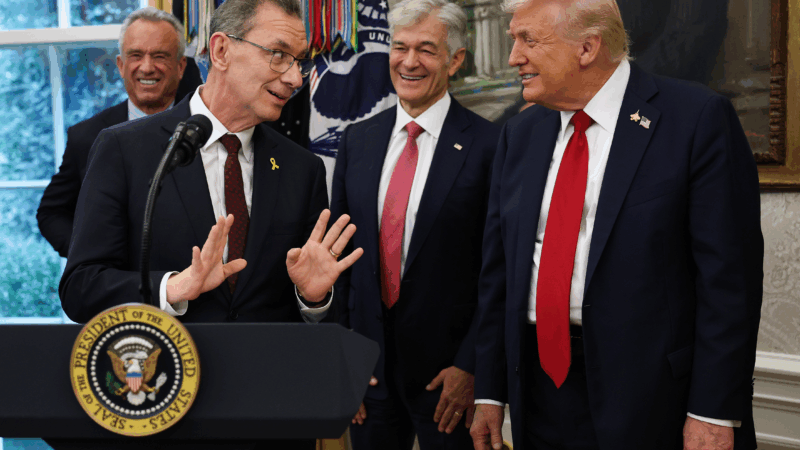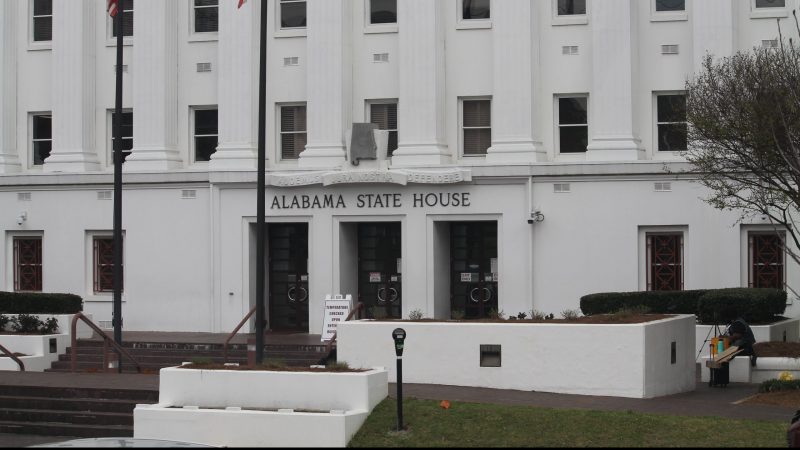Canada wildfires cause poor air quality in the midwest and northeast U.S.
Hazy skies hung over parts of the midwest and northeastern U.S. on Sunday, caused by smoke drifting across the border from hundreds of wildfires in Canada.
Canada is experiencing its second worst wildfire season on record, according to government data, with almost 4,000 fires recorded already this calendar year.
Smoke coming across the border has affected air quality in several U.S. states. This weekend, air quality reached concerning levels across Wisconsin, Michigan, and Minnesota. Parts of Illinois and Indiana are also under air quality alerts. People in New York, Vermont, New Hampshire, and Maine are also being advised to limit outdoor activity due to pollution from the smoke.
National Weather Service Lead Forecaster Bob Oravec told NPR that the current wind patterns are once again driving the spread of polluted air into the U.S. from Canada.
“Air is moving at all levels and a lot of times it’ll move in the same direction through the whole depth of the atmosphere, so the smoke is rising into the winds and the winds just transport it downstream, like anything — like a leaf getting blown,” Oravec explained.
On Friday, Minnesota’s Pollution Control Agency extended its statewide air quality alert until noon on Monday, August 4th.
Minnesota Public Radio reports the state is currently under its longest air quality alert since the Minnesota Pollution Control Agency began issuing alerts in 2008. The alert is expected to last seven days in total.
Conditions started improving in some areas of Minnesota on Sunday. Earlier this weekend, the agency reported it expected the air quality index (AQI) to reach the most severe level of “red” for all of the state, which is considered unhealthy for everyone.
In a statement, the Pollution Control Agency warned that even healthy people may experience symptoms such as irritated eyes, coughing, or shortness of breath. Others could feel more serious impacts, the agency said.
“Sensitive or more exposed individuals may experience more serious health effects, including worsening of existing heart or lung disease and respiratory and cardiovascular conditions, possibly leading to an asthma attack, heart attack, or stroke,” according to the Pollution Control Agency statement.
Elsewhere, the Wisconsin Department of Natural Resources extended its air quality alert for several counties until noon on Monday, August 4th, mostly in the southeast part of the state. Health officials in Michigan also extended the state’s alert in all counties through Monday.
Canadian Interagency Forest Fire Centre reported that more than 700 active fires were burning across Canada on Sunday, mostly in the southern province of Manitoba, directly to the north of Minnesota. The agency says more than 500 are burning out of control. Thousands of Canadians have had to evacuate their homes to escape the fires.
Wildfires have been raging in parts of Canada for much of the year. In May, two people who were trapped by a wildfire in southeastern Manitoba were killed. In June, parts of the U.S. experienced similar conditions from the smoke.
Oravec says poor air quality could impact areas of the U.S. for some time.
“It looks like that pattern maintains itself going forward through this week, so it doesn’t really appear to be any big break. There may be a day or so where there’s a temporary break to it, but overall it looks like there is potential for additional smoke to be transported southeastward into the United States,” he said.
Air quality tracker IQAir ranked the air quality in Detroit, Chicago, and Minneapolis among the most polluted in the U.S. on Sunday afternoon.
For those with addiction, going into and coming out of prison can be a minefield.
Many jails and prisons around the country don't provide medication treatment for opioid use disorder. Studies show that medication makes recovery more likely and reduces the risk of overdose death.
Trump struck deals with 16 drug companies. But they’re still raising prices this year
All 16 drug companies that inked deals with the Trump administration over the past few months still raised some of their prices for 2026.
This hospice has a bold new mission: saving lives
A hospice in Uganda asked itself: Can we do more than ease the pain of dying? Can we actually prevent deaths from cervical and breast cancer?
Ivey releases proposed state budgets
Lawmakers are often running in Montgomery having finished the first week of this year's legislative session. It's a week that saw the announcement of Gov. Kay Ivey's budget proposal, along with the first bills starting to make their way through the legislative process. We talk about that with Todd Stacy, host of Capital Journal on Alabama Public Television.
Canada agrees to cut tariff on Chinese EVs in return for lower tariffs on Canadian farm products
Breaking with the United States, Canada has agreed to cut its 100% tariff on Chinese electric cars in return for lower tariffs on Canadian farm products, Prime Minister Mark Carney said Friday.
What do eggs, Grok and Greenland have in common? They’re all quiz-worthy! Are you?
See if you can get a perfect score for once.







